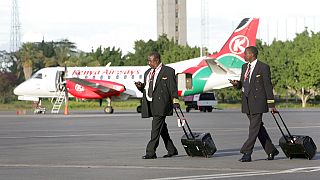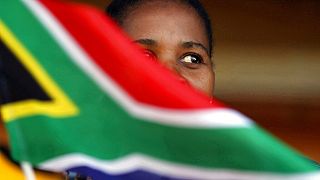african culture
In Lagos, Nigeria, the runway is busier than ever.
According to a UNESCO report released during Lagos Fashion Week, Africa’s fashion industry is rapidly growing to meet local and international demand.
But it's also lacking the adequate investment to achieve its full potential.
Currently valued at $15.5 billion worth of exports annually, the earnings from the continent’s fashion industry could triple over a decade with the right investment and infrastructure, according to the United Nations cultural body.
"It’s people now coming to realise that there is a lot of treasure in the Nigerian culture and particularly in the fashion industry," says fashion designer Ejiro Amos-Tafiri.
Across the continent, fashion continues to grow on various fronts – including in movies and films – in the form of textiles, garments as well as accessories and fine crafts, all with a long history of prestige and symbolic of the African culture.
"We are very social people. We have such a joie de vivre nature and such a bold personality. So, with all of this, the fashion had to be right there to support and to be part of that growth," says Amos-Tafiri.
The demand for African fashion brands is also spurred by the growth in e-commerce, the UNESCO report notes.
Africa leads mobile device web traffic in the world, according to the U.S. International Trade Administration.
That has opened more marketing opportunities such that across Nigeria, for instance, young people on social media are steadily opening fashion brands.
Ozinna Anumudu is one of them.
She founded her online fashion store ozinna.com.
"The growth rate of the Nigerian fashion industry in the last 10 years has been quite exponential. Social media has played a big role in this. For example, now, from a click, we have women shopping in Australia, shopping in France, and these are women who never necessarily had access to Nigerian clothing, but literally is now a click away thanks to social media," she says.
Featuring a mix of designers from across the continent, the annual fashion show celebrates — and provides a market for — local brands. It mostly highlights African culture and crafts in various colours and styles.
"We believe that we're there (at the level of Western brands) in terms of design and style," says Anumudu.
"We're just not there yet in terms of production and serving the world economy as a whole because of production issues and financial capital issues as well. I feel like the future for the Nigerian fashion industry is just coming at par with contemporaries around the world."













02:13
Ghana's John Akomfrah represents Britain at Venice Biennale
02:20
'Fietan du Burkina', the dance troupe empowering the deaf
02:20
Abidji peoples mark founding in southern Ivory Coast, also known as Dipri festival
02:20
Congolese creatives aim for renaissance of African storytelling
02:20
Yves Saint Laurent exhibition in Marrakech celebrates cacti and floral designs
02:35
Kenyan company making sustainable textiles out of pineapple waste